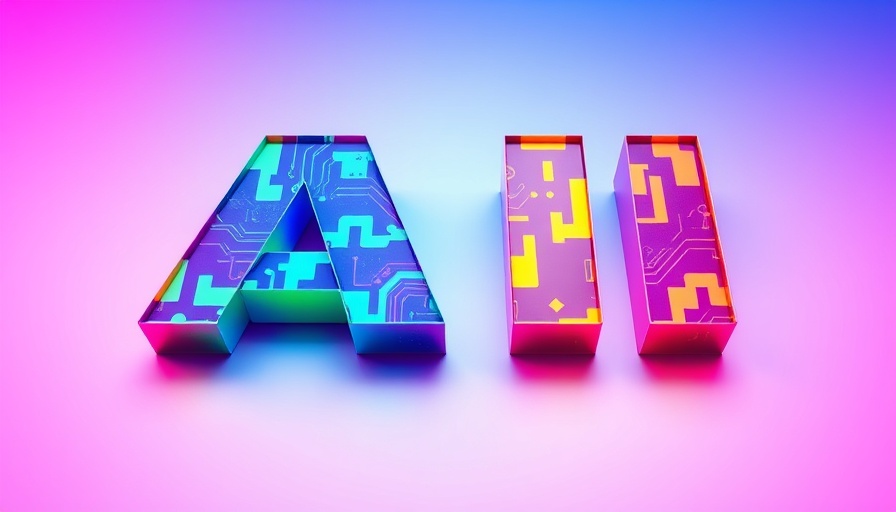
AI's Rising Influence in Our Daily Lives
This week, artificial intelligence continues to be a transformative force across industries, influencing job markets, education, and personal technology. The new developments reported by Google encapsulate the ongoing evolution of AI and its implications for society, especially among younger generations.
Google's AI Ultra Subscription: A VIP Experience
At the recent I/O developer conference, Google introduced its ambitious AI Ultra subscription service at $249.99 per month. This service offers high-end access to Google's latest AI products, designed primarily for businesses and innovators eager to utilize the most cutting-edge technology. Users will benefit from the highest usage limits of the Gemini language model and exclusive features that promise to keep subscribers on the front line of AI advancements.
Google's announcement marks the company's return to the smart glasses sector, showcasing a new device that combines AI capabilities for real-time translation and contextual information about the user's environment. This innovative integration indicates not just a leap in product development but a broader shift towards wearable technology infused with AI, which reflects consumers' growing appetite for immersive experiences.
The Impact of AI on Entry-Level Jobs in Tech
However, the rapid rise of AI isn't without challenges. A study by SignalFire indicates a troubling trend where entry-level tech jobs are dwindling. The research reveals that even though demand for seasoned professionals is surging—up 27% within major tech companies in 2024—recent graduates are facing an increasingly tight job market. AI tools are taking on tasks that traditionally provided new hires with essential experience, leading to a paradox that leaves new workers struggling to find opportunities to grow their skill sets.
This development raises critical questions about the future of education and the job market. As more employers lean towards utilizing AI for efficiency, how can fresh graduates demonstrate their prowess without the entry-level roles that historically enabled them to gain experience? This change compels educational institutions to rethink their training and orientation strategies to better prepare students for a tech landscape shaped by AI.
Challenges Facing Higher Education
Education is also experiencing significant adaptations due to AI advancements. Bloomberg's editorial team recently emphasized that students are increasingly outsourcing their assignments to AI-powered tools, transforming academic integrity and expectations. Students now have access to resources that can perform complex tasks in seconds, raising concerns about the long-term implications for learning and intellectual development. As AI potentially replaces traditional homework routes, educators are tasked with adapting their curriculums and assessing methods to ensure students develop critical thinking skills and not just efficient outsourcing habits.
A Broader Perspective on AI Integration
The current trends paint a complex picture of our society's relationship with AI. On one hand, technologies like Google’s AI Ultra service empower creative minds and businesses to maximize productivity and innovation. On the other, the growing automation of entry-level positions threatens to leave young talent without a foothold to jump-start their careers. This dynamic fuels discussions about the value of experience versus automation in the workplace and raises urgent calls for educational reform in light of these advancements.
Future Predictions: Navigating Job Market Turbulence
Moving forward, the critical challenge will be finding a balance between leveraging AI to improve operational efficiency and ensuring that new entrants into the workforce are given pathways to success. Solutions could arise through innovative models of teaming students with AI for educational partnerships, cultivating skills alongside technological evolution.
The ongoing debates surrounding AI's impact on societal frameworks underscore a significant transition period. For those navigating this landscape, understanding the evolving tech landscape and its ramifications is essential. From enjoying the benefits of new subscription models to contemplating the broader implications of educational trends, each development in AI marks a notable shift that individuals, educators, and businesses must thoughtfully navigate.
Conclusion
As we continue to witness AI’s footprint on modern life, addressing its dual-edged nature will be crucial. Only by embracing the opportunities while tackling the challenges can we forge a path that not only celebrates innovation but also protects the interests and futures of emerging talent.
 Add Row
Add Row  Add
Add 



Write A Comment